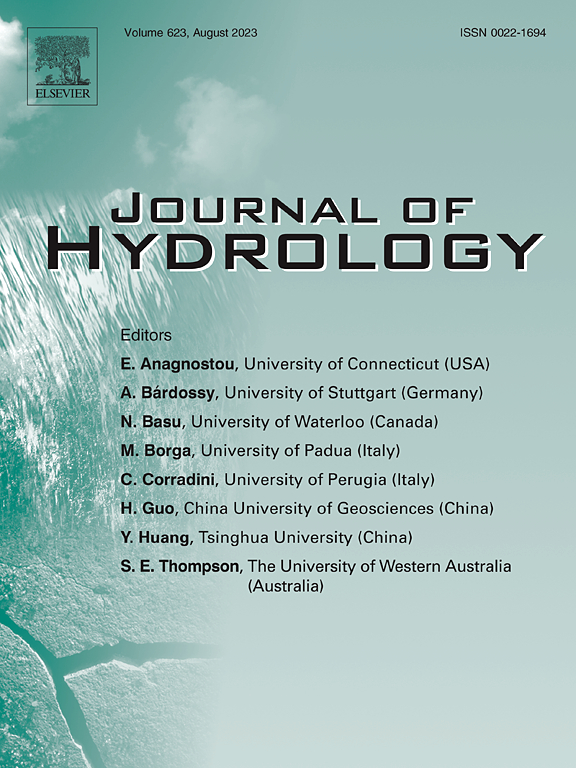基于可解释机器学习的水文预报传感器优先级
IF 6.3
1区 地球科学
Q1 ENGINEERING, CIVIL
引用次数: 0
摘要
水文部门的数字化带来了与物联网网络实施、广泛的数据管理和实时分析相关的新挑战,同时为改善水文预报提供了重要机会。可靠的信息对于管理水文地质风险和优化水资源利用至关重要,特别是在当前气候变化时代,其特征是频繁和严重的极端事件,如强降水和长期干旱。本研究旨在通过基于可解释机器学习的传感器优先级来增强短期水文预测。我们提出了一个评估框架,该框架包括调整基于机器学习的不同视界水文模型,应用留一交叉验证来模拟传感器故障并评估其重要性,以及定义传感器优先级级别。这项研究在南蒂罗尔流域(意大利北部)进行,使用了来自流量测量仪和气象站的数据。结果表明,特定传感器对预测精度有显著影响,优先级提高了水文预测的可靠性。这些发现强调了维护关键传感器的重要性,并为优化监测系统维护中的资源分配提供了一种数据驱动的方法,最终提高了水文预测和风险缓解策略的稳健性。本文章由计算机程序翻译,如有差异,请以英文原文为准。
Sensors prioritisation for hydrological forecasting based on interpretable machine learning
The digitalisation of the hydrological sector introduces new challenges related to IoT network implementation, extensive data management, and real-time analysis while offering significant opportunities to improve hydrological forecasts. Reliable information is crucial for managing hydrogeological risks and optimising water usage, particularly in the current era of climate change, marked by frequent and severe extreme events such as intense precipitation and prolonged droughts. This study aims to enhance short-term hydrological predictions by prioritising sensors based on interpretable machine learning. We propose an evaluation framework that involves tuning machine learning-based hydrological models for different horizons, applying leave-one-out cross-validation to simulate sensor failures and evaluate their significance, and defining sensor priority levels. Conducted in the South Tyrol watershed (northern Italy), this study uses data from streamflow gauges and weather stations. The results show that specific sensors significantly impact forecasting accuracy, and prioritisation improves the reliability of hydrological predictions. These findings highlight the importance of maintaining critical sensors and provide a data-driven methodology for optimising resource allocation in monitoring system maintenance, ultimately enhancing the robustness of hydrological forecasting and risk mitigation strategies.
求助全文
通过发布文献求助,成功后即可免费获取论文全文。
去求助
来源期刊

Journal of Hydrology
地学-地球科学综合
CiteScore
11.00
自引率
12.50%
发文量
1309
审稿时长
7.5 months
期刊介绍:
The Journal of Hydrology publishes original research papers and comprehensive reviews in all the subfields of the hydrological sciences including water based management and policy issues that impact on economics and society. These comprise, but are not limited to the physical, chemical, biogeochemical, stochastic and systems aspects of surface and groundwater hydrology, hydrometeorology and hydrogeology. Relevant topics incorporating the insights and methodologies of disciplines such as climatology, water resource systems, hydraulics, agrohydrology, geomorphology, soil science, instrumentation and remote sensing, civil and environmental engineering are included. Social science perspectives on hydrological problems such as resource and ecological economics, environmental sociology, psychology and behavioural science, management and policy analysis are also invited. Multi-and interdisciplinary analyses of hydrological problems are within scope. The science published in the Journal of Hydrology is relevant to catchment scales rather than exclusively to a local scale or site.
 求助内容:
求助内容: 应助结果提醒方式:
应助结果提醒方式:


